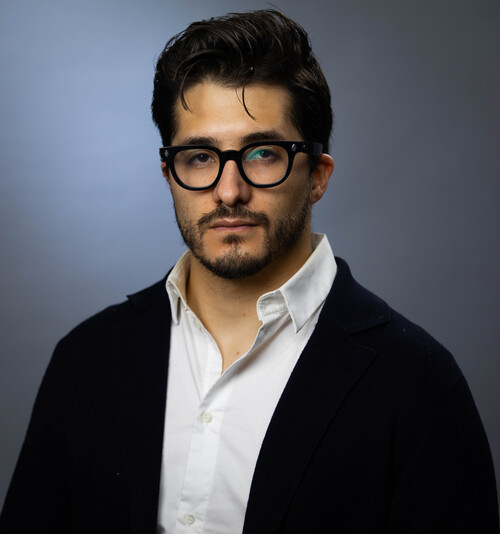Mauro Lazarovich

With “Citizens of Nowhere: Stateless and Refugee Literature in Latin America,” 2024 Harvard Horizons Scholar Mauro Lazarovich, a PhD student in romance languages and literature, shines a light on the experience of the stateless—and the writers and artists who brought those “erased” by governments and bureaucracies back into view through their creative work.
The title of Lazarovich’s project is taken from the words of the writer who inspired it. Stefan Zweig was an Austrian Jew stripped of his citizenship and passport in the lead-up to Nazi occupation in the 1930s. In his memoir, The World of Yesterday, Zweig, one of the most internationally popular writers of the early twentieth century, chronicled his journey from cosmopolitan to exile in Brazil. “My literary work . . . has been burnt to ashes in the country where my books made millions of readers their friends,” Zweig wrote. “So I belong nowhere now, I am a stranger or at the most a guest everywhere . . . . Against my will, I have witnessed the most terrible defeat of reason and the most savage triumph of brutality in the chronicles of time.”
Lazarovich’s intellectual Virgil on this journey is the historian, philosopher, and political theorist Hannah Arendt. In her 1951 book, The Origins of Totalitarianism, Arendt observed that having lost the rights of citizenship in their native countries, refugees had only natural and human rights. Enlightenment thinkers asserted that these rights were “inalienable” but, in fact, they placed the stateless person in a position of radical vulnerability.
For the creatives Lazarovich studies, the same experience that moved them to make the stateless a subject of their art also inspired them to become public intellectuals advocating for new rights of asylum for refugees. Some, like the Chilean poet Gabriela Mistral—who in 1945 became the first Latin American to win the Nobel Prize for literature—did so as formal representatives of their nation’s government. “She wrote about the concept of genocide and the Genocide Convention,” Lazarovich says. “She gave speeches about the Universal Declaration of Human Rights. She talked about new rights of asylum. So, in many ways, she embodies the two claims I make about writers and artists—namely, that literature and art both captured the concept of rightlessness and envisioned the rights of asylum.”
Like the artists and writers he studies, Lazarovich hopes that his work can be relevant for people inside and outside of the humanities—and the academy. That’s one reason why he’s volunteered for the past two years at Harvard Law School’s Immigration and Refugee Advocacy Clinic as an interpreter for Spanish-speaking asylum seekers. His goal is to enable thinkers from different professions and fields of knowledge to better understand statelessness—and to present the issue as a genuinely global problem across national, linguistic, and disciplinary borders.

